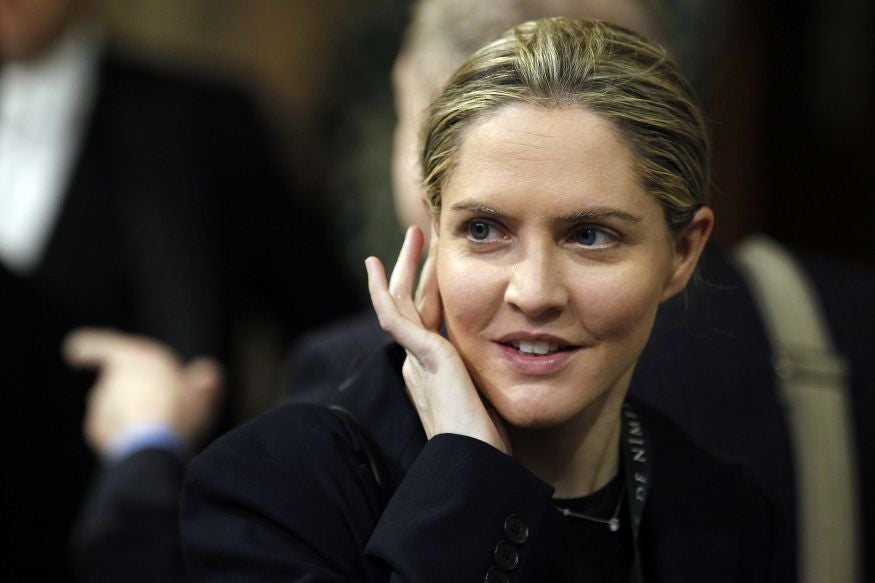The 'golden generation' of 2010 Tory MPs comes to an early end
Nine of the 2010 intake have already announced they will not run. Will more follow?

They were the future once. The 147 Conservative MPs elected for the first time in 2010 were described as a golden generation, many of whom would rise high up the political ladder.
Now nine of them have decided to spend their best years away from Westminster, cutting short their political careers after only five years. Up to 10 others may follow. Although there are retirements at every general election, it is unusual for so many MPs to depart voluntarily after just one term.
The exodus worries senior Conservatives. All the departing MPs from the 2010 intake are in marginal seats. Their exit will deprive the Tories of the precious “incumbency factor”, which has grown in the past 20 years as MPs have increasingly taken up their constituents’ problems. Their loss could undermine the Tories’ “40-40 strategy” for securing an overall majority next May – holding 40 marginal seats and winning another 40.
Four of the nine MPs are women, which means that a quarter of the new Tory women elected in 2010 may quit, adding to David Cameron’s “women problem.”
The wave of departures also sends a worrying signal – that the MPs and their party is unlikely to win. Although Labour’s lead in the opinion polls has narrowed this year, Ed Miliband’s party is performing more strongly in the marginals.
Ukip’s rise is another possible factor. Some Tory MPs fear that Nigel Farage’s party will cost them victory – not by winning their seats but by taking enough votes from them to allow Labour to overtake them. The defection to Ukip of Douglas Carswell, the former Tory MP for Clacton, has added to the Tory jitters.
The 'golden generation' of 2010 Tory MPs
Show all 9Naturally, the MPs who are leaving deny that they are jumping before they – and Mr Cameron - are pushed out by the voters. It is true that some are quitting for personal, family or health reasons.
Chris Kelly, 36, who at university put a £50 bet on himself to become prime minister, will stand down as MP for Dudley South. He has held talks with Ukip and described Mr Carswell as a “superb MP”, wishing him “all the best.” But Mr Kelly insists he will not join Ukip and friends say he may take over the running of his father’s lorry dealership in West Bromwich.
Another factor in the early departures is frustration at the limited opportunities for promotion in a coalition, with ministerial jobs shared with the Liberal Democrats. Mr Cameron’s July reshuffle was the last straw for some Tory backbenchers who missed out.
“I don’t want to spend another five years as lobby fodder and being told what to think,” said one of those who is standing down. Some Tory backbenchers complain that their expertise in specific areas is ignored by ministers and that Mr Cameron does not give them enough “TLC”. One said: “A glass of warm white wine and canapés twice a year is not enough.”
The Conservative Party declined to comment on the exodus. Tory sources believe it signals a new trend that applies to all parties.
“Parliament may no longer be a career for life, but a stage before people move on to something else,” said one. “Some find that being an MP is not what they were expecting.”
There are some success stories from the 2010 intake. Sajid Javid, one of its brightest stars, was first to make it to the Cabinet as Culture Secretary and is tipped as a future Tory leader.
Tories point out that a higher proportion of Labour MPs will stand down next year, prompting Labour fears of a “brain drain”. However, they are mostly experienced MPs: 15 of the 30 have ministerial experience.
Another factor in the departures may be the tougher expenses regime introduced after the 2009 scandal. MPs complain that ending the “second homes” allowance means they have to stay in a hotel or tiny flat in London, keeping them apart from their children. But as Mark Simmonds, the former Foreign Office Minister, found when he blamed the “intolerable” expenses system for his decision to leave parliament, MPs can expect little sympathy from the public.
Subscribe to Independent Premium to bookmark this article
Want to bookmark your favourite articles and stories to read or reference later? Start your Independent Premium subscription today.

Join our commenting forum
Join thought-provoking conversations, follow other Independent readers and see their replies